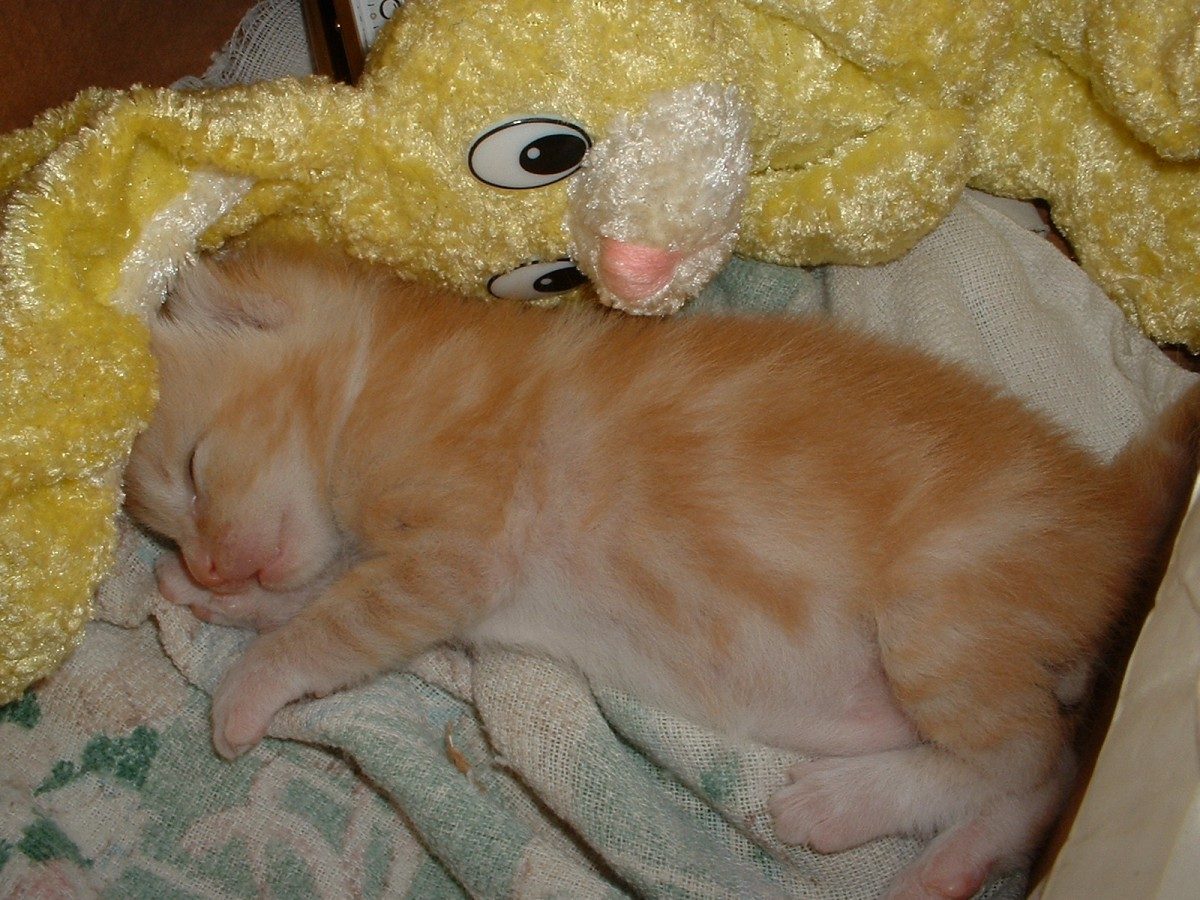What to do first
If a rescued kitten feels cold, warm it immediately, but gently. Place it on a heating pad wrapped in towels and on the lowest setting, or warm a hot water bottle to about 100 degrees (wrapped in a towel) and place it with the kitten. Many veterinarians have incubators to warm a chilled kitten. Do not feed a kitten until it is warm, since it can’t properly digest when cold. It is okay, though, to syringe feed a few drops of 5% sugar water or to rub a little bit of Karo syrup on the kittens’ lips.
Kittens under 3 weeks can’t control their body temperature. Keep them on a heating pad, set on low, wrapped in towels (at least two layers of towels, or one towel folded over) should cover the pad. You’ll know if it’s too hot if the kittens tend to sleep on the edges. The heating pad should be used until the kittens are about 4-5 weeks old, or until you notice that they’re avoiding it. An alternative that many fosters prefer is a heat lamp over the kitten nest.
Kittens should be kept in a box or cat carrier in a warm, draft-free place, completely isolated from other animals. Keep the container covered with a towel or blanket; a small towel or cloth inside the carrier will also keep them cozy. Change the bedding of their “nest” daily, since kittens tend to have accidents! As they get older, they will need more room to exercise, play, and explore. A spare bathroom is ideal for this.
Get a check up
It is a good idea to take them immediately to a veterinarian to be checked for dehydration and general condition. Bring a stool sample if possible to be tested for worms and parasites. Young kittens are always at risk for being dehydrated and it can happen very quickly; a dose of fluids injected under skin (subcutaneously, also known colloquially as “sub-q”) is necessary in this case. Ask your vet or vet technician to show you how to do it. This will be convenient if your kitten becomes dehydrated rapidly or in the middle of the night. Even the most squeamish fosters have mastered this and it’s not as horrible as it sounds.
Many vets will give you a courtesy (free) office visit if you tell them this is a rescued kitten you are fostering; their staff can give you lots of advice and supplies along the road as well. Don’t skip this step! You can also contact your local shelter or rescue group and ask if you can become an official “foster parent” through their organization as you raise your kitten. Many of these organizations help cover the cost of necessary medical care as the kitten grows towards adoptable age.

